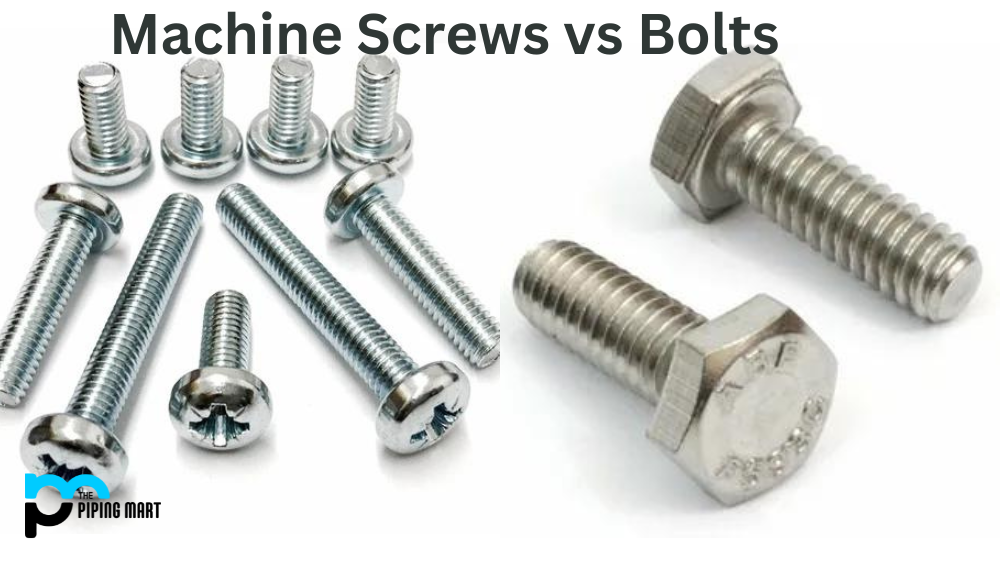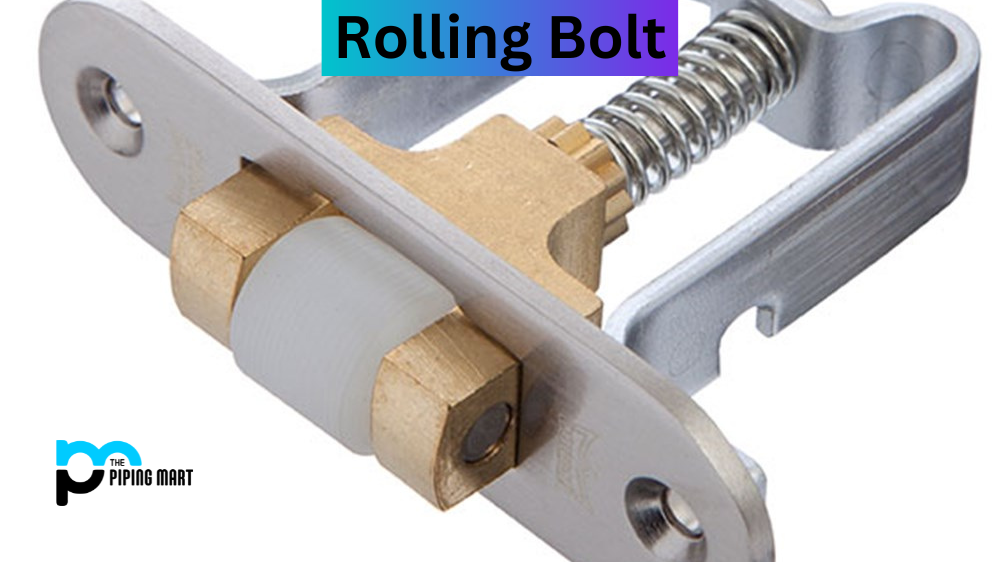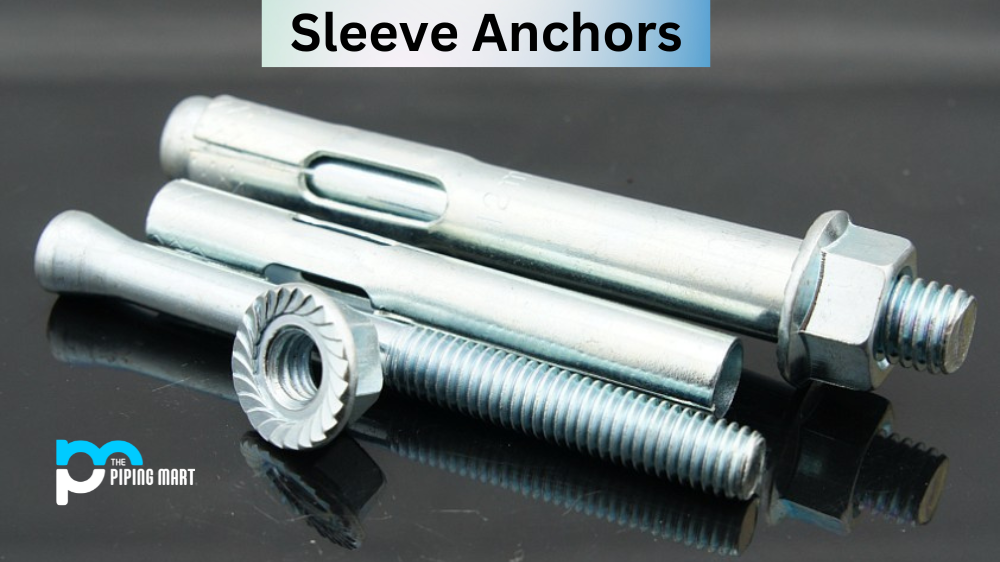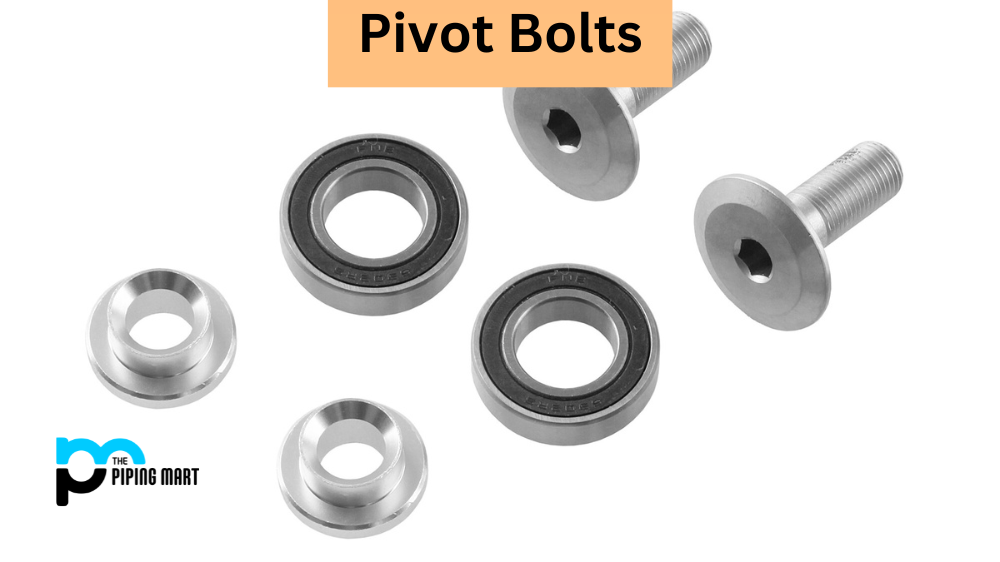When it comes to fastening objects, machine screws, and bolts are two popular options you may come across. These have unique features that make them suitable for specific applications. But, at first glance, it can be tough to distinguish between the two. In this blog, we’ll look at the difference between a machine screw and a bolt to help you determine the suitable fastener for your needs.
Difference Between Machine Screws and Bolts
Size and Shape
One of the primary differences between a machine screw and a bolt is its size and shape. Typically, machine screws are smaller and have finer threads. They are designed to be inserted into pre-tapped holes in metal or other materials. On the other hand, bolts are larger and have coarser threads than machine screws. They usually require a nut and washer to fasten two objects together.
Head Shape
Another feature that sets machine screws and bolts apart is their head shape. Machine screws usually have a flat or rounded head and are designed to be fastened flush with the material’s surface. In contrast, bolts have a hexagonal head supporting the nuts and washers to secure two objects together. Since bolts have more authority, more torque and pressure can be applied when tightening.
Materials
The type of material used to create machine screws and bolts also differs. Machine screws are made of brass, steel, or stainless steel and are ideal for applications that require high precision and accuracy, such as electronics or machinery. On the other hand, bolts are made of steel or other materials that can support a higher load capacity, such as automobiles or construction projects.
Applications
Machine screws and bolts are designed to meet specific functional requirements and are used in different applications. Machine screws are typically used to secure objects in place, such as the casing of electronic devices or knobs and handle on cabinets. Bolts are often used in construction projects and automotive applications, such as holding heavy objects or structural components together.
Threaded Length
One more factor differentiating machine screws and bolts is their threaded length. Machine screws have a shorter thread length than bolts. They are designed to remain inside a pre-tapped hole and don’t require any additional components. Conversely, bolts have a longer thread length and always require a nut and washer to secure in place.
Other Differences
- Machine Screws are Smaller than Bolts.
- Machine screws are threaded the entire length of their shank, while bolts are only threaded a portion of their leg.
- Machine screws are designed to be used with a nut or tapped hole, while bolts are intended to be used with a nut and washer.
- Machine screws are typically made from softer metals like brass or aluminium, while bolts are made from harder metals like steel.
- Machine screws are less likely to loosen due to vibration, while bolts are more likely to reduce due to vibration.
- Machine screws can be removed and replaced more quickly than bolts, making them ideal for applications where frequent disassembly is required.
- Bolts are generally stronger than machine screws, making them ideal for applications with high tension levels.
- Bolts are less likely to strip out the threads in a tapped hole than machine screws, making them ideal for applications with high torque.
Conclusion
In summary, machine screws and bolts may seem similar, but they are unique in their own ways. They differ in size, head shape, material, applications, and threaded length. Knowing the difference between the two will help you determine the best fastener for your particular application. Always consider the characteristics of the material you are fastening, the type of load to be supported, and the strength requirements before choosing between machine screws and bolts. Understanding the differences between these two fasteners allows you to make an informed decision and achieve the desired result.

Meet Bhavesh, a seasoned blogger with a wealth of knowledge and experience. From metal products manufacturing to retail, Bhavesh has a diverse background in various industries and is dedicated to sharing his insights and expertise with readers.




